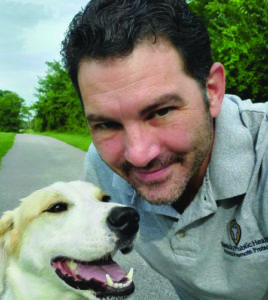
FRANKFORT Excess weight and obesity are serious threats to the health and wellbeing of many people. In Kentucky, over 36% of the adult population is considered obese. Nationally, there are 12 states with obesity rates in excess of 35%, while 23 additional states have rates between 30% and 34.9%. The physical consequences are dire: heart disease, high blood pressure, stroke, type 2 diabetes, and some forms of cancer. Economically, obesity costs the U.S. $147 billion in medical costs. The individual medical cost burden for those with obesity adds up to an average of $1,429 more than persons of normal weight.
While statistics paint a harsh picture of the consequences of obesity, there are efforts in public health and the medical community to address the impacts of obesity on individual health and the overall population health. First line evidence-based weight loss strategies include dietary therapy, physical activity, and behavior therapy. When these are done in combination, great success can be found. When these strategies are not effective on their own, FDA approved pharmacology may be an option as an add-on, without abandoning the former. Lastly, when none of these strategies works, weight loss surgery may be a final option.
When considering these strategies as a whole, success of initial weight loss and maintenance over time still require the same hard work and dedication. Employing the first-line strategies becomes a lifestyle as opposed to a mission. Studies show that the majority of patients who lose weight because of clinical intervention will regain it within 3 – 5 years. (NHLBI Obesity Education Initiative Expert Panel on the Identification, Evaluation, and Treatment of Obesity in Adults (US). Bethesda (MD): National Heart, Lung, and Blood Institute; 1998 Sep). Public health initiatives can help provide the community support needed to overcome some of the barriers to long-term weight loss success, such as a lifestyle change program offered through the National Diabetes Prevention Program. This evidence-based program can reduce a person’s risk of developing type 2 diabetes by 58% (71% in individuals aged 65 and older) and is available in many Kentucky communities.
Social determinants of health (SDOH) are the conditions in the environment that affect a wide range of health and quality-of-life outcomes and risks. Examples include:
safe housing, transportation, and neighborhoods;
racism, discrimination, and violence;
education, job opportunities and income;
access to nutritious foods and physical activity opportunities;
polluted air and water;
language and literacy skills
All of these play a role in the behavior therapy portion of weight loss, providing supports at a community level to overcome the barriers of inadequate physical activity and poor nutrition. An example of addressing a SDOH is looking at a community’s access to nutritious food. Are there areas in a community that are geographically isolated and have no access to fresh produce because there are no grocery stores? Are there adequate sidewalks and bike paths that are accessible to all people? Are there considerations of the different cultures that exist in the community and how to reach out and address community needs by involving those community members who are not traditionally involved?
When looking at weight loss through a clinical lens, the SDOH may not seem so obvious. According to Robert Farrell, MD, bariatric surgeon with Bluegrass Total Weight Specialists, when a patient has reached the point of weight loss surgery, that surgery is not enough for the individual to be successful. Although bariatric surgery can be the “reset button,” long-term success and management still require dedication to physical activity and diet. Additionally, his team focuses on the behavioral barriers that can derail the weight loss achieved by surgery, such as lack of family support, inadequate sleep, and more.
Farrell also believes that communities can play a major role in healthy lifestyles and obesity prevention. Some of the things he mentioned were safe and accessible bike lanes and sidewalks; making healthy food more affordable and accessible; and integrating healthy food choices and options early in childhood.
Weight loss is certainly a complex issue, but it is an issue that can be addressed holistically and responsibly, through social determinants of health and, when necessary, through weight loss surgery provided by a team serving the whole person, not just the diagnosis.
The Kentucky Department for Public Health receives funding through the CDC, cooperative agreement #NU58DP006497, to implement the Kentucky Physical Activity and Nutrition Program, focusing on early care and education, food service guidelines, active living, and breastfeeding.
Brian Boisseau is program manager for the Kentucky Physical Activity and Nutrition Program of the Kentucky Department for Public Health. He can be reached at brian.boisseau@ky.gov.


